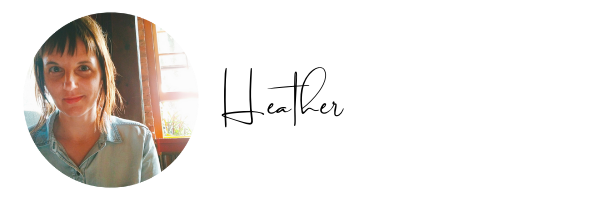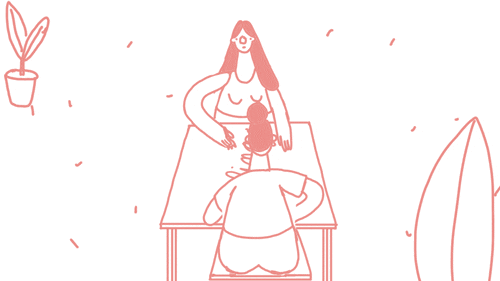“You are not a troubled guest on this earth,
you are not an accident amidst other accidents”
Many of you know how I talk about writing seasons: there are times when the words are available, and times where they are not.
I have not written for most of this past year.
I dabbled in a few projects and, of course, have written to all of you. But I just didn't want to write. When I tried, I felt...bored. Not stuck. Just...actually bored, which has literally never happened in my life with writing, except for overly ruminative journaling. The spark had gone and I knew enough not to push it. To let life take its course, to trust that it would come back around. This is what I teach my writers: you need to fill the well, to be open and curious, to pursue what lights you up. Sometimes what lights you up isn't your writing, and that's okay.
I wasn't scared about it.
Confused, yes. Weirded out, sure. Sad: absolutely. Writing has been my stalwart companion lo these many years. Life was clearly pulling me in another direction, not unrelated--becoming a therapist for creatives--but a bummer nonetheless. After nine books and decades of writing practice, though, I had to allow my creativity to find its expression elsewhere (I had a brief love affair with Zentangles and embroidery) and to keep pursuing what filled me with a quiet and certain yes.
A few months ago, I realized that a medication I'd been taking for the past few years was the culprit. It made it so that I couldn't feel things as strongly as I once did. I didn't realize that this was what was causing me to not have an interest in fiction or the memoir I'm working on. In retrospect: duh. But as someone with chronic pain, I'm constantly juggling meds and therapies and tracking this and that. As soon as I began decreasing the dose, the words and ideas and - most important - the excitement and desire to write came back. This is tricky, of course, because I take that medication for a reason.
But I don't think it was just the medication. I believe I was being forced by my body to take a break.
In fact, recognizing that the medication was messing with my flow happened around the same time I started taking naps and realized how much tension I was holding throughout my body and took practical steps with my cranial sacral therapist to address that. I'd come off of writing one of the hardest (and best) things I've ever put into the world ("put" is relative, as it's still on sub). I started grad school again. I bought my first place. I got diagnosed with two chronic illnesses, started speaking again to both my parents, got lay-ordained in Zen Buddhism, and completed a mindfulness facilitation certification at UCLA. My life was full without the writing. But I missed it. And I'm so glad it has returned to me. I think I have more to offer the page because of this time away from it. Absence does, indeed, make the heart grow fonder.
I write in the margins now, and I find that this is a good place for me to be.
“The Ecstasy of Enough” by Liz Huston
The margins keep me hungry for more. I'm in the process of becoming a clinical social worker and have found that I work best as a writer when I have a lot on my plate. Then the writing gets to be dessert, and never feels like it's simply fuel to get me through the day. I also think the margins work for me because, when writing isn't my whole life, I'm getting inspired in so many directions and then I want to write about all of it. If all I do is write, I often feel listless and uncertain. There is also a great deal of pressure to produce, even if I'm running on fumes.
All I can say is that it was worth the wait. My body and mind are ready to write and I'm having so much fun.
If life circumstances have caused you to be in this same place, I hope my experience helps you take heart. You might not have a medication messing with you or illness, but I'm guessing there is something - or several somethings - that necessarily have to take priority now.
There is nothing wrong with you, and you are not a bad writer, if you are a writer who finds themselves in a non-writing season.
I recently co-taught a meditation class with a mindfulness buddy and he shared the most magnificent poem with me, which we - of course! - had to share with our students. I've put it below for you and I hope it hits your heart in just the spot it hit mine...or wherever you need a good burst of light. We worked with this poem at my Mini Cozy Retreat in October and this was just before I had my a-ha! moment about my medication. That retreat was created as much for me as for the writers who attended, because I needed a cozy writing den for a few hours.
One thing we did was to go through the poem a few times - you can also read it out loud - and highlight any words or phrases that are really jumping out at you, then use those as journaling prompts. It's a pretty yummy way to spend a Saturday afternoon.
What to Remember When Waking
by David Whyte
In that first hardly noticed moment in which you wake,
coming back to this life from the other
more secret, moveable and frighteningly honest world
where everything began,
there is a small opening into the new day
which closes the moment you begin your plans.
What you can plan is too small for you to live.
What you can live wholeheartedly will make plans enough
for the vitality hidden in your sleep.
To be human is to become visible
while carrying what is hidden as a gift to others.
To remember the other world in this world
is to live in your true inheritance.
You are not a troubled guest on this earth,
you are not an accident amidst other accidents
you were invited from another and greater night
than the one from which you have just emerged.
Now, looking through the slanting light of the morning window
toward the mountain presence of everything that can be
what urgency calls you to your one love?
What shape waits in the seed of you
to grow and spread its branches
against a future sky?
Is it waiting in the fertile sea?
In the trees beyond the house?
In the life you can imagine for yourself?
In the open and lovely white page on the writing desk?
from The House of Belonging, Many Rivers Press
To your open and lovely white page, whenever you decide to spend time with it...












